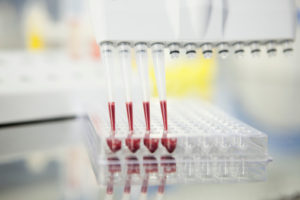Although morphological and biochemical storage lesions accumulate in stored red blood cells (RBCs), several recent randomized clinical trials have not found fresh red blood cells to be superior to RBCs that have been stored for longer periods of time. Few studies, however, have compared the metabolome of stored RBCs including endogenous compounds from the donor and exogenous compounds from the storage materials (e.g., additive solutions and storage bags and tubing). To this end, researchers examined the metabolome of RBCs after autologous transfusion from 18 healthy donors stored for 5 days and 42 days. Autologous transfusion of RBCs stored for 42 days increased levels of plasticizers (e.g., diethylhexyl phthalate found in storage bags) in the plasma of recipients 18-fold compared to normal levels. Post-transfusion levels of pro-inflammatory oxylipins in the plasma had the most significant metabolome increases (e.g. 9-hydroxyeicosatrienoic acid increased 41-fold; P=<0.05) after transfusion of day 42 RBCs compared to day 5 RBCs. Furthermore, nitric oxide-mediated vasodilation may be impacted based on levels of arginine metabolites after 42 days of storage. Further enhancements to RBC storage such as novel storage solutions may be possible from understanding the metabolomic changes that occur during storage.
Reference:

